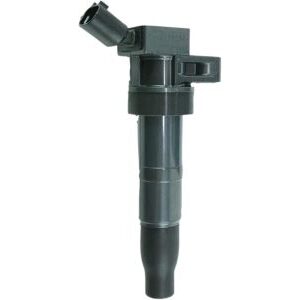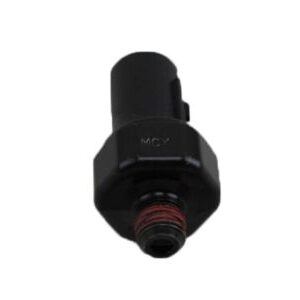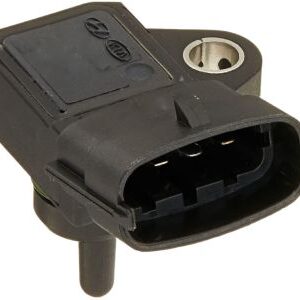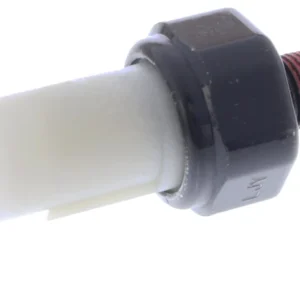Title: Unveiling the Valve Solenoid: A Key Player in Your Engine’s Performance
Introduction:
In the intricate symphony of your vehicle’s engine, there’s a small yet mighty component orchestrating the flow of fluids and gases – the valve solenoid. Often operating behind the scenes, this electronic marvel plays a pivotal role in controlling the movement of valves, optimizing engine performance, and enhancing efficiency. Join us as we delve into the world of valve solenoids, uncovering their function, significance, and the essential role they play in keeping your engine running smoothly and reliably.
Understanding Valve Solenoids:
Valve solenoids, also known as solenoid valves, are electromechanical devices used to control the flow of fluids or gases in various automotive systems. They consist of a coil of wire (solenoid) encased in a metal or plastic housing, with a movable plunger or piston mechanism inside. When an electrical current is applied to the solenoid coil, it generates a magnetic field that moves the plunger, opening or closing the valve.
How Do Valve Solenoids Work?
The operation of valve solenoids is based on the principle of electromagnetism. When the solenoid coil is energized by an electrical current, it creates a magnetic field that attracts or repels the plunger, depending on the design of the valve. This movement of the plunger alters the position of the valve, either allowing or blocking the flow of fluid or gas through the system. By controlling the opening and closing of valves, valve solenoids regulate various engine functions, such as fuel injection, turbocharger operation, and emission control.
Importance of Valve Solenoids:
The importance of valve solenoids in modern engines cannot be overstated. These versatile components serve several critical functions:
1. Fuel Injection Control: In fuel-injected engines, valve solenoids play a crucial role in controlling the flow of fuel to the engine cylinders. By precisely regulating fuel delivery based on engine load and operating conditions, solenoid valves help optimize combustion efficiency, fuel economy, and emissions.
2. Turbocharger Control: In turbocharged engines, valve solenoids are used to control the operation of the turbocharger wastegate or variable geometry turbo (VGT) system. By adjusting the flow of exhaust gases to the turbocharger turbine, solenoid valves help regulate boost pressure, optimizing engine performance and responsiveness.
3. Emission Control: Valve solenoids are integral to various emission control systems, such as exhaust gas recirculation (EGR) and evaporative emissions systems. By controlling the flow of exhaust gases or vapor, solenoid valves help reduce harmful emissions and ensure compliance with emissions regulations.
4. Variable Valve Timing (VVT): In engines equipped with VVT systems, valve solenoids play a key role in adjusting the timing of intake and exhaust valves to optimize engine performance at different engine speeds and loads. By controlling the flow of oil to the VVT actuator, solenoid valves enable precise timing adjustments for improved power delivery and efficiency.
Maintenance and Replacement:
To ensure optimal engine performance and reliability, it’s essential to properly maintain your valve solenoids. Over time, solenoid valves may become contaminated with dirt, oil, or debris, leading to restricted flow or failure. Regular inspection and cleaning of solenoid valves, as part of routine maintenance, can help prevent issues and ensure proper function. Signs of a faulty valve solenoid include engine hesitation, rough idling, decreased performance, and illuminated check engine light.
Conclusion:
In conclusion, valve solenoids may be small in size, but their impact on engine performance, efficiency, and emissions control is significant. By controlling the flow of fluids and gases in various engine systems, valve solenoids play a crucial role in optimizing combustion, regulating turbocharger operation, and reducing harmful emissions. So, the next time you hit the road, remember to appreciate the unsung hero silently working behind the scenes – the valve solenoid.
In stock (can be backordered)
$18,926.31
Title: Unveiling the Valve Solenoid: A Key Player in Your Engine’s Performance
Introduction:
In the intricate symphony of your vehicle’s engine, there’s a small yet mighty component orchestrating the flow of fluids and gases – the valve solenoid. Often operating behind the scenes, this electronic marvel plays a pivotal role in controlling the movement of valves, optimizing engine performance, and enhancing efficiency. Join us as we delve into the world of valve solenoids, uncovering their function, significance, and the essential role they play in keeping your engine running smoothly and reliably.
Understanding Valve Solenoids:
Valve solenoids, also known as solenoid valves, are electromechanical devices used to control the flow of fluids or gases in various automotive systems. They consist of a coil of wire (solenoid) encased in a metal or plastic housing, with a movable plunger or piston mechanism inside. When an electrical current is applied to the solenoid coil, it generates a magnetic field that moves the plunger, opening or closing the valve.
How Do Valve Solenoids Work?
The operation of valve solenoids is based on the principle of electromagnetism. When the solenoid coil is energized by an electrical current, it creates a magnetic field that attracts or repels the plunger, depending on the design of the valve. This movement of the plunger alters the position of the valve, either allowing or blocking the flow of fluid or gas through the system. By controlling the opening and closing of valves, valve solenoids regulate various engine functions, such as fuel injection, turbocharger operation, and emission control.
Importance of Valve Solenoids:
The importance of valve solenoids in modern engines cannot be overstated. These versatile components serve several critical functions:
1. Fuel Injection Control: In fuel-injected engines, valve solenoids play a crucial role in controlling the flow of fuel to the engine cylinders. By precisely regulating fuel delivery based on engine load and operating conditions, solenoid valves help optimize combustion efficiency, fuel economy, and emissions.
2. Turbocharger Control: In turbocharged engines, valve solenoids are used to control the operation of the turbocharger wastegate or variable geometry turbo (VGT) system. By adjusting the flow of exhaust gases to the turbocharger turbine, solenoid valves help regulate boost pressure, optimizing engine performance and responsiveness.
3. Emission Control: Valve solenoids are integral to various emission control systems, such as exhaust gas recirculation (EGR) and evaporative emissions systems. By controlling the flow of exhaust gases or vapor, solenoid valves help reduce harmful emissions and ensure compliance with emissions regulations.
4. Variable Valve Timing (VVT): In engines equipped with VVT systems, valve solenoids play a key role in adjusting the timing of intake and exhaust valves to optimize engine performance at different engine speeds and loads. By controlling the flow of oil to the VVT actuator, solenoid valves enable precise timing adjustments for improved power delivery and efficiency.
Maintenance and Replacement:
To ensure optimal engine performance and reliability, it’s essential to properly maintain your valve solenoids. Over time, solenoid valves may become contaminated with dirt, oil, or debris, leading to restricted flow or failure. Regular inspection and cleaning of solenoid valves, as part of routine maintenance, can help prevent issues and ensure proper function. Signs of a faulty valve solenoid include engine hesitation, rough idling, decreased performance, and illuminated check engine light.
Conclusion:
In conclusion, valve solenoids may be small in size, but their impact on engine performance, efficiency, and emissions control is significant. By controlling the flow of fluids and gases in various engine systems, valve solenoids play a crucial role in optimizing combustion, regulating turbocharger operation, and reducing harmful emissions. So, the next time you hit the road, remember to appreciate the unsung hero silently working behind the scenes – the valve solenoid.
| Warehouse | Inventory at warehouse 2 |
|---|




Get E-mail updates about our latest products and special offers.
Sensors and More is Jamaica’s ultimate online auto parts store. Established in 2020, we specialize in genuine electrical parts for Japanese, Read more…
Reviews
There are no reviews yet.